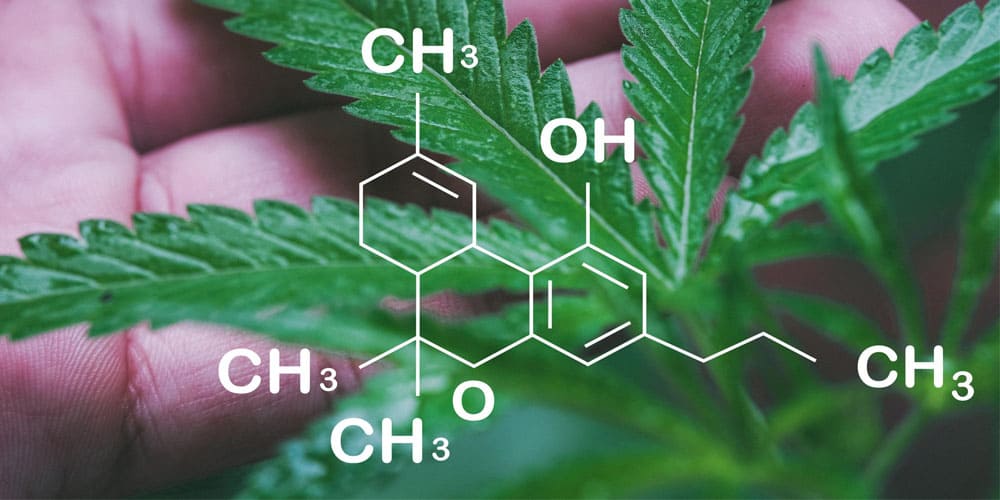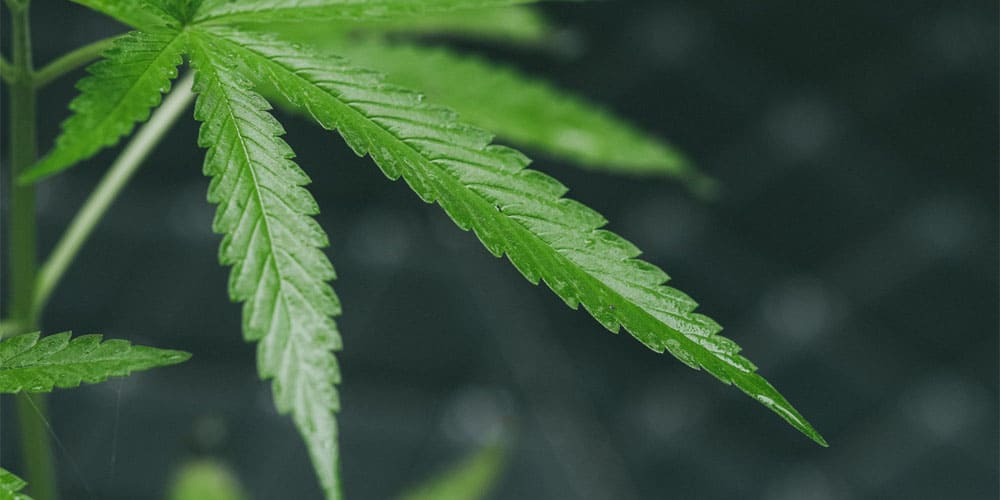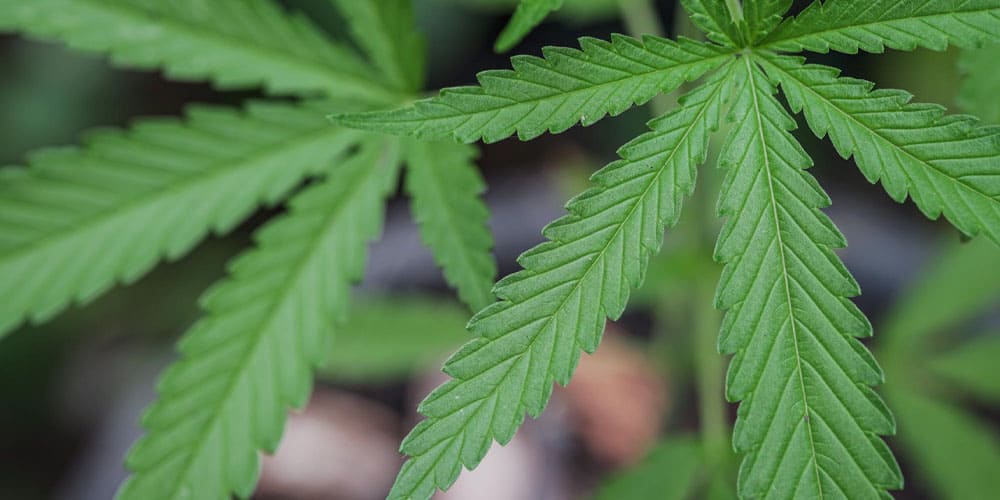The Surprising THCV Benefits for Health and Wellness

Tetrahydrocannabivarin, or THCV, is emerging as a potent cannabinoid with a range of impressive health benefits. While THC and CBD have dominated conversations around cannabis for health and wellness, THCV promises a new narrative with its unique effects and potential applications. This cannabinoid is not only fascinating from a scientific standpoint but also for its practical implications in everyday health management. Here’s an in-depth look at THCV benefits and why it might become a key player in future wellness trends.
- Understanding THCA: A Deep Dive into the World of Cannabis
- Unveiling the Effects of Delta 8 THC: A Brief Overview
- What Is 11-hydroxy-THC?
What is THCV?

THCV, or tetrahydrocannabivarin, is a compound found in cannabis plants that differs slightly from THC, the main psychoactive ingredient that most are familiar with. Unlike THC, THCV provides a variety of effects and benefits that contribute to potential therapeutic applications without a high psychoactive impact. This cannabinoid is gaining attention for its unique interaction with CB1 and CB2 receptors in the body’s endocannabinoid system, offering a different pathway from other cannabinoids.
Primarily found in African strains of cannabis, THCV’s molecular structure is similar to THC but with variations that lead to different pharmacological properties. Research indicates that THCV may moderate the effects of THC, potentially reducing anxiety and paranoia sometimes associated with its use. This positions THCV as a promising candidate for those seeking the medical benefits of cannabinoids without intense psychoactive effects.
THCV is synthesized in cannabis plants through a specific pathway that involves the conversion of CBGVA (cannabigerovarin acid) into THCVA, which eventually decarboxylates into THCV. The presence and concentration of THCV in cannabis plants can vary significantly, influencing both the plant’s effects and potential medicinal benefits. This variability has spurred interest in breeding and genetic research to enhance THCV content for medical use.
Indulge in the sweet, soothing embrace of Peach 7 Mini Joints Infused + Kief, each crafted to deliver the luscious, authentic flavor of fresh, ripe peaches. These mini joints provide a delightful taste experience, combining the succulence of peach with the potent enhancement of infused cannabis and a dusting of kief for added potency and smoothness.
THCV Benefits for Appetite Control

THCV has garnered significant interest for its potential to suppress appetite, a unique feature in contrast to the well-known appetite-stimulating properties of THC. This appetite suppression capability makes THCV an attractive option for those looking to manage weight or reduce caloric intake. It interacts with cannabinoid receptors in a way that may block the sensations of pleasure associated with eating, particularly in snacking or overeating scenarios.
In practical terms, THCV could play a crucial role in weight management strategies for individuals struggling with obesity or weight-related health issues. By mitigating the desire to eat, THCV helps control dietary intake, potentially leading to healthier eating habits and weight loss. This aspect is particularly appealing in the context of increasing global obesity rates and the related health conditions that accompany this epidemic.
The efficacy of THCV in appetite control has not only implications for weight management but also for the regulation of metabolic health overall. Research is ongoing to fully understand how THCV’s suppressive effects on appetite can be harnessed in clinical settings. Promising results could pave the way for new supplements or medications aimed at diet control and metabolic health, offering a natural alternative to synthetic appetite suppressants.
Potential in Diabetes Management

THCV’s potential impact on diabetes management is promising, as studies suggest it can help regulate blood sugar levels and reduce insulin resistance. These properties could make it an invaluable tool in the management of type 2 diabetes, where insulin sensitivity is a major concern. THCV seems to improve pancreatic cell function, which plays a critical role in insulin production and secretion, thereby improving glucose control.
By enhancing glucose tolerance and insulin sensitivity, THCV can help stabilize blood sugar levels, reducing the spikes and drops that are dangerous for diabetic patients. This stabilization is crucial for long-term management of diabetes, helping to prevent complications such as neuropathy, retinopathy, and heart disease. Its potential to reduce fasting blood glucose levels could be a significant breakthrough in diabetic care.
Moreover, the use of THCV in diabetes management could also lead to reduced dependency on traditional medications, which often come with significant side effects. If THCV can effectively manage blood glucose levels, it might reduce the need for additional medications or insulin in some cases, providing a more natural approach to managing this chronic condition. As research progresses, THCV could become an integral part of diabetes prevention and management strategies.
Experience the smooth, nuanced relaxation of GELATO Sauce Cartridge, a premium cannabis extract that marries deep physical ease with the sharpness needed to stay productive. This sauce cartridge is perfect for those who seek relaxation without sacrificing their ability to remain active and engaged.
Neuroprotective Properties

THCV has demonstrated potential neuroprotective effects, which could be particularly beneficial in the treatment of conditions like Parkinson’s disease and Alzheimer’s. Studies indicate that THCV can protect nerve cells against damage and degeneration by combating oxidative stress and inflammation, two major contributors to neurodegenerative diseases. This action not only preserves neural structures but also enhances brain function.
Additionally, THCV’s ability to promote the growth of new brain cells offers hope for neurogenerative conditions that currently have limited treatment options. This aspect of THCV could revolutionize treatments, potentially improving cognitive functions in diseases characterized by cognitive decline. Its neuroprotective properties are backed by research suggesting improvements in motor control and brain health.
The cannabinoid’s effectiveness in treating epilepsy highlights its role in managing excitotoxicity, the process that leads to excessive neurotransmitter release and neuron damage. By modulating neurotransmitter levels, THCV can help maintain neural stability, which is crucial for preventing seizures and other neurologic symptoms associated with epilepsy and similar disorders.
Anti-Inflammatory Effects

THCV’s anti-inflammatory effects are significant, especially given the prevalence of chronic inflammatory diseases such as arthritis and inflammatory bowel disease. By acting on the CB2 receptors, THCV helps modulate the immune system, reducing inflammation without the psychoactive effects typically associated with cannabis. This selective activity makes THCV an appealing option for chronic inflammation management.
Its anti-inflammatory properties extend beyond pain relief to actually addressing the underlying causes of inflammation. This action can lead to improved mobility and quality of life for individuals suffering from chronic inflammatory conditions. Furthermore, because THCV does not produce significant psychoactive effects, it can be used by a wider range of patients, including those who may be sensitive to THC.
THCV has been shown to inhibit the inflammatory cytokines that play key roles in autoimmune diseases, suggesting that it could be useful in managing conditions like multiple sclerosis and rheumatoid arthritis. This regulatory effect on immune response not only helps reduce pain and swelling but also may slow disease progression, offering a promising therapeutic avenue for long-term disease management.
Energize your day with the zesty flavor of Limoncello 7 Mini Joints Infused + Kief, inspired by the bright, tangy essence of the Italian lemon liqueur. Each mini joint combines the invigorating citrus burst of lemon with a touch of zesty lime, creating a refreshing and delightful smoking experience.
Anxiety and Panic Attack Management

THCV has shown promise in managing anxiety and panic attacks, distinguishing itself from other cannabinoids that can exacerbate such conditions. Its ability to act as an antagonist at the CB1 receptors means it can potentially reduce the anxiety-inducing effects of THC while promoting calmness and mental clarity. This dual action makes it a candidate for treating a range of anxiety-related disorders.
In low doses, THCV modulates neurotransmitter release, which can help prevent the onset of panic attacks without sedative effects often associated with other anxiety treatments. This unique property allows for alertness and cognitive clarity, enabling individuals to manage their anxiety while maintaining their day-to-day responsibilities. Thus, THCV offers a functional, non-disruptive approach to anxiety management.
Furthermore, the cannabinoid’s potential to enhance mood through its interaction with the endocannabinoid system could lead to broader applications in mental health treatment. By adjusting cannabinoid receptor activity, THCV may help stabilize mood swings and provide a more natural form of anxiety relief. This aspect of THCV could be particularly beneficial for those seeking alternatives to traditional pharmaceuticals.
Bone Growth and Regeneration

THCV shows significant potential in promoting bone growth and regeneration, which is critical in the treatment of osteoporosis and other degenerative bone diseases. It stimulates the proliferation of bone-forming cells (osteoblasts) and inhibits bone-resorbing cells (osteoclasts), thereby fostering a more robust bone structure. This dual action not only enhances bone density but also speeds up the healing process after fractures.
Recent studies highlight THCV’s role in enhancing collagen production, a major component of bone tissue. This aids in creating a stronger matrix within the bone, which is essential for both bone toughness and resilience. Increased collagen synthesis can lead to improvements in overall bone quality and a reduction in the likelihood of future breaks or fractures.
Moreover, the cannabinoid’s ability to promote new bone cell formation presents a promising avenue for developing therapies aimed at bone diseases that lead to weak and brittle bones. By targeting the cellular level of bone growth, THCV can help mitigate conditions like osteoporosis, making it a valuable component of future treatments for aging populations.
The Future of THCV in Health and Wellness

As research into THCV continues to advance, its role in health and wellness is poised to expand significantly. The unique properties of THCV, such as appetite suppression, blood sugar regulation, and neuroprotective effects, set it apart from other cannabinoids and highlight its potential as a multifunctional treatment option. This versatility could lead to the development of targeted therapies for a wide range of conditions.
The growing interest in personalized medicine and natural remedies could see THCV becoming a key ingredient in customized healthcare solutions. As cannabis legalization progresses globally, the availability of specific cannabinoids like THCV for medical and wellness applications is likely to increase, providing patients with new, more effective treatment options.
Moreover, the cannabis industry itself may evolve to focus more on the therapeutic aspects of different cannabinoids, including THCV. With increased awareness and scientific backing, we can anticipate seeing more cannabis strains and products specifically bred for high THCV content. This shift will likely fuel further innovation and investment in the health potential of cannabis, cementing THCV’s place in the future of medical and wellness therapies.
















